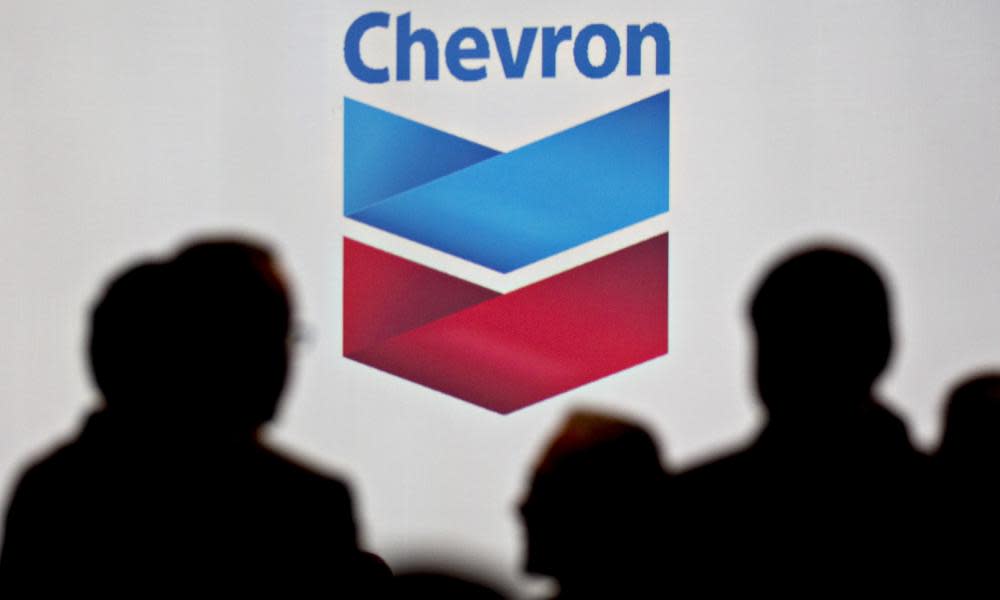'Nothing to hide?' Oil and gas lobby pushes to limit data on its emissions

The Australian oil and gas lobby is pushing to limit public information about greenhouse gas emissions from liquefied natural gas (LNG) plants, a move that contradicts the global industry’s pledge to increase transparency about their impact on the climate.
The Australian Petroleum Production and Exploration Association (Appea) has called for LNG plants to be able to apply for emissions data to be withheld from the public on the grounds that releasing it could help its competitors overseas. It has been backed by Chevron, which operates the Gorgon and Wheatstone LNG developments in Western Australia.
The push follows the federal government reporting that the booming LNG sector is the main driver of Australia’s growing emissions.
Existing regulations require polluting sites that emit more than 100,000 tonnes of carbon dioxide a year to have their emissions published unless doing so could reveal a trade secret or any other matter that would affect the project’s commercial value.
In a submission to a Climate Change Authority inquiry, Appea called for the circumstances under which a company’s data could be withheld from publication to be broadened so it was easier to apply to opt out if it disadvantaged it in international markets. Chevron agreed, warning greenhouse data could reveal fuel usage, which may reveal operating cost structures.
Shareholder activist group the Australasian Centre for Corporate Responsibility said the push was at odds with a global campaign under which the industry’s major players, including Chevron, Woodside and Santos, had committed to increased transparency about climate change.
If these companies have nothing to hide, then they shouldn’t be concerned about transparency.
Daniel Gocher, Australasian Centre for Corporate Responsibility
The companies have committed to report in line with recommendations from the Task Force on Climate-related Financial Disclosures that investors, lenders, insurers and regulators should be given improved information on corporate climate risk.
Daniel Gocher, the centre’s climate and environment director, said given emissions data for each Australian LNG development was already publicly available, it appeared Appea and Chevron wanted to avoid increased scrutiny if pollution was to rise.
He said industry concerns about competitive disadvantage may be genuine as investors across the world were increasingly aware of the climate impact of their investments, but that was not an argument to lower disclosure standards.
“As trite as it sounds, if these companies have nothing to hide then they shouldn’t be concerned about transparency,” he said.
“By committing to [the disclosure task force] they have essentially committed to ongoing transparency. Trying to hide your emissions data while doing that is not a very good look.”
Investor Group on Climate Change chief executive Emma Herd, representing institutional investors with funds worth about $2tn, said the push for less transparency was the opposite of what her members expected.
“If anything, they want more detail, more granular information than what is being made available to the market,” she said.
She said Appea’s case seemed at odds with a growing view that climate change was a financial risk that carried legal disclosure obligations.
From a low base, the Australian LNG industry has surged to a value of $31bn and is responsible for 5% of national carbon pollution. That is expected to reach $48bn and 7% of emissions by 2020. The growth in LNG emissions over five years is roughly equivalent to the amount of pollution avoided by the national renewable energy target.
Australia’s LNG export industry is the second-largest in the world behind Qatar, though the US is expected to become the biggest exporter next decade.
An Appea spokesman said there were currently limited circumstances in which companies could ask to have data withheld if it was commercially sensitive, but it was particularly important for those with competition from countries that did not have similar reporting requirements. He said the association was simply asking the government to simplify and streamline the application process. That could apply to any company, not just an LNG producer.
“It is important to remember the vital role natural gas is playing in reducing carbon emissions from power generation, both in Australia and in the many countries to which we export LNG,” he said.
A Chevron spokeswoman said it had supported the national greenhouse gas reporting system since its introduction in 2007 and would continue to work with the government to ensure policies maintained Australia’s international competitiveness.
Chevron is under pressure over a delay to a carbon underground injection promised to reduce emissions at the Gorgon development by 40%. No emissions have been buried nearly two years after LNG production began at the site. The company says technical issues are to blame and it expects emissions storage, which is part of its licence agreement with the Western Australian government, to start by March.
A spokesman for environment minister Melissa Price said Australia’s greenhouse reporting requirements were intended to promote public transparency and that provisions already existed to allow companies to request information that would reveal commercially sensitive details not be published.

 Yahoo News
Yahoo News 
